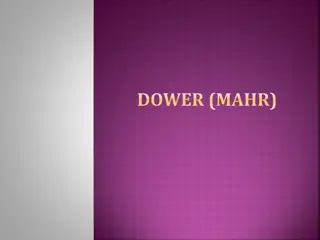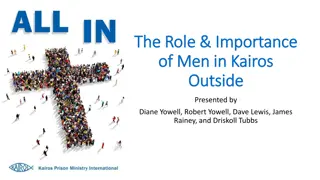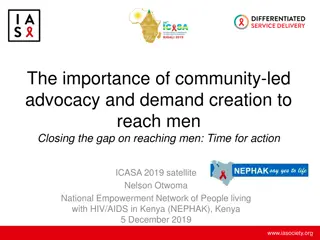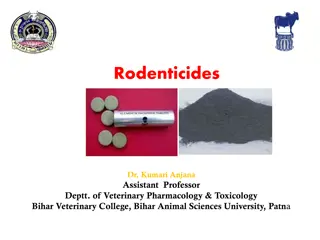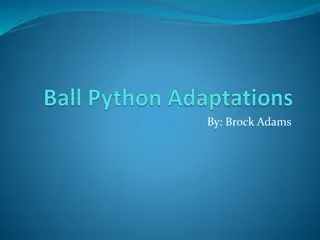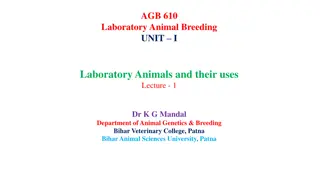Analysis of Curley's Wife in 'Of Mice and Men'
Curley's wife, a character in John Steinbeck's novel "Of Mice and Men," is depicted as a possession of her husband, striving to break free from the confines of her unhappy marriage. She harbors dreams of independence and success but is limited by the societal norms and sexism prevalent in 1930s America. Through her interactions and desires, she showcases the struggle of women in that era to achieve autonomy and self-fulfillment amidst male dominance.
Download Presentation

Please find below an Image/Link to download the presentation.
The content on the website is provided AS IS for your information and personal use only. It may not be sold, licensed, or shared on other websites without obtaining consent from the author. Download presentation by click this link. If you encounter any issues during the download, it is possible that the publisher has removed the file from their server.
E N D
Presentation Transcript
CURLEY'S WIFE By Maisie, Abby, Sophie, Kelly, Eleri and Millie
Quote list o "I coulda made somethin' of myself." o '"You listenin'?"' o "Curley's wife said angrily, "Don't you think of nothing but rabbits?"' o "she hurried before her listener could be taken away." o "rouged lips" o "red fingernails" o "jailbait" o "Tart" o "Tramp" o"Curley's wife" o"I don't like Curley. He ain't a nice fella." o"Coulda made somethin' of myself" o"Coulda been in the movies, an' had nice clothes... An' I coulda sat in them big hotels, an' had pitchers took of me..." o"Yeah? Married two weeks and got the eye? Maybe that's why Curley's pants is full of ants." o"maybe I will yet"
Curley's wife is a possession of her husband. Throughout the novel Curley's wife isn't given a name and is simply referred to as "Curley's wife". This reveals that women such as Curley's wife are viewed as a possession of their husbands. The sexism and the view of women being lesser beings than their husband that most people in the 1930s is displayed through out the treatment of Curley's wife. This had lead to Curley's wife having the dream of escaping her husband and being viewed as a powerful woman. She said "I don't like Curley. He ain't a nice fella." Here we can see that even after only a few weeks of being married, Curley's wife is very unhappy in her marriage and wishes to be free. Furthermore, in 1930s America, very few women had success so many of them had to marry successful men to have any hope of thriving. Curley's wife said that she "coulda made somethin" of herself but she never was able to and instead had to settle for being nothing but a wife to a cruel man. Curley's wife clearly is shown to have the dream of wanting to depend on nobody but herself. Unfortunately for her, men in the 1930s were favoured over women in the job force so therefore, there was a lack of job opportunities for women. Leading to Curley's wife depending on Curley instead of achieving her dream of self dependency. This is further shown where she says she "coulda been in the movies, an' had nice clothes... An' I coulda sat in them big hotels, an' had pitchers took of me..." We can see that she dreams of having materialistic goods and never mentions having the desire to live a life of wealth with Curley. She wishes to live a life of self-made wealth and independency like the other women she has seen who HAVE made it in Hollywood.
Possession 2 "Yeah? Married two weeks and got the eye? Maybe that's why Curley's pants is full of ants." As Curley's Wife feels trapped within her unhappy marriage, she tries her hardest to live out her dream and become free of Curley. She is seen as a possession of Curley and is treated as object for his sexual pleasure which reveals how sexism affected women in 1930s American society as they were seen to be at the bottom of the hierarchical ladder. She attempts to pursue her dream on a small scale by dressing up and wearing make up provocatively. Her personal style is the only thing that Curley cannot own and so she makes the most of this. Curley's Wife wanders around the ranch and flirts with other men to try and live out her Hollywood dream to the biggest extent that she can. She does this to try and make Curley jealous as this is the most attention she usually gets. Moreover, she might act this way to try and make Curley feel bad about himself as she hates how he acts like he can control her every move. Curley's Wife is a good example of a woman in 1930s America who does not want to conform with stereotypical society. The phrase 'got the eye' implies that Curley's Wife is unsatisfied in her marriage and is disobeying the standard rules of society as she is frowned upon because of this, being called names such as 'jailbait' or a 'tart'. This may link to her dreams as she does dream of being a sought after Hollywood star. Also, she understands that her dream in unlikely as after the Depression, many people lost faith in the idea of the American Dream and started to believe that their dreams would never become a reality. Curley's Wife has come to this realisation but still tries to remain hopeful for the future. However, for the time being, she tries her hardest to pursue her dream on a smaller scale by flirting with other men on the ranch and expressing herself through the means of fashion and makeup. WE as readers realise, however, that her 'flirting' with men stems from her isolation and loneliness.
Her dream of being an actress "I coulda made somethin' of myself" and "Coulda been in the movies, an' had nice clothes... An' I coulda sat in them big hotels, an' had pitchers took of me..." In 1930s America, not all women were discriminated against, Hollywood actresses were successful, powerful and talented women. Curley's wife dreamed of becoming a Hollywood actress and being respected as Curley made her feel worthless and like an outsider. Throughout the novella we see her dress and act in a way to draw attention to herself, similar to how an actress would act confident and proud. Furthermore, the colour red in which she dresses is a bright and bold colour which can imply that she is bold and brave, despite the miserable life in which she lives in. She wants everyone to look at and admire her and therefore disobeys Curley's orders to 'stay at home' and wants the independence she once and could've had. Moreover, we see irony towards the end of the book where she confesses to Lennie of her dream, only to be killed a few moments after. This causes the reader to feel sympathetic towards her as they realise that she never fulfilled her dream and it is symbolic of the fact that the American Dream is nothing for false hope for many people in 1930s America. Moreover, she craves human connection and this dream is ripped from her in the death that follows this moment of confession and connection. Despite this, we could infer that her dream was destroyed not because of her death, but because of her miserable life with Curley, where she felt powerless and had very little hope and chance of becoming an actress. Moreover, the tentative language "coulda" reveals to us that she has given up hope as she feels trapped and isolated by Curley and the general 1930s society. She uses past tense to imply that she has given up fighting and trying to become an actress and has nowhere to go to pursue her dream, because of the patriarchal society at that time, which believed that most women should stay at home and that they are belongings of their husbands who have the right to do what they wanted to them, which was usually using them for sexual pleasure. We can see the contrast in the lifestyle of a Hollywood actress and a women like Curley's wife.
Nobody acknowledges her and her dream We see how Curley's wife's dream is important to her and her only, as nobody cares about what she has to say in 1930's America where women were sexualized and had a domesticated purpose. Men at the time didn't see any value in what she had to say because she had no power and no worth, as she didn't have a job. Until her conversation with Lennie, she had never opened up about her dream and aspirations to anyone before and tries to make the most of her opportunity, 'she hurried before her listener could be taken away' as she is desperate to free her passion. Even though we know that Lennie has difficulties with concentrating, the fact that he doesn't listen to what she is saying and is more concerned with his own dream shows that, at this time, everyone was working for themselves and didn't want to listen to other peoples dreams because the Depression had created an 'every man for himself' attitude in society. This is because during the Depression millions became unemployed and suffered great hardship, therefore everyone was focused on doing what they needed to do to survive. This is further shown when she says, "Don't you think of nothing but rabbits?" to Lennie as we see he is solely focused on his own dream. She says this 'angrily' as at this point she is clearly frustrated at his lack of interest in something that matters to her deeply, as one could argue, her faint glimmer of hope that one day her dream will come true is what gives her meaning to her life. She questions Lennie, "You listenin'?" almost fully knowing that he isn't yet still continues on because she doesn't know when she ever be able to talk about her dreams openly again. At this point she knows that people don't acknowledge her but won't give up, perhaps because she sees the injustice of society and doesn't want to accept it.
Her appearance Curley's Wife wears clothes that are red, she even had 'rouged lips' as well as 'red fingernails'. We assume that this is all to draw attention to herself because she is seen as a bit of a 'tart' and wants to make Curley jealous or feels that it is the only way that she will get noticed. Red symbolises danger, sex and lust. In the book, Steinbeck uses her to portray these themes. It could imply that she, herself is dangerous. However, is there a more innocent meaning behind her fashion choices? Due to the depression, everyone had lost hope of obtaining their dreams, their only choice was to work to make enough money to be able to look after themselves. After she moved in with Curley, she became reliant on him. She wasn't able to become a successful actress and working woman like the other women that she aspired to follow, as a result, she is now stuck on the ranch as Curley's property and unable to make a good life for herself. She shows optimism for her future when she says that "Maybe I will yet". However, the reality is she dies before she can actually attempt to change her life. She shows how trapped she felt in the way that she wore ostrich feathers on her shoes. Ostriches are flightless birds. This could represent how she feels that she is unable to do anything to improve her life and make herself happy. She is seen to dress extravagantly, much to the dismay of the other ranch workers. She does this because it is the only part of her actress dream that she can live out and her choice in clothes is the only thing that she can control. She wants to feel glamorous in some way and needs to be able to take herself away to somewhere where she is happy and can distract herself from the sad reality that she lives in. We could infer that she needs to feel satisfied that she has made it in some way to prove that she is just as good as the other successful women. She uses the power she has to make herself feel satisfied in her life and try to achieve the only part of her dream that she can. She does not let the sexism and the hate she receives oppress her. She still has hope for a career yet even though she has been let down in the past, she dresses herself this way to keep the hope and dream alive.
How and why her dream failed Overall, Curley's wife's dream failed as she was killed by Lennie. However, her dream could have failed before she was killed, because she was a woman. The ranch workers call her names multiple times, such as 'jailbait' and 'tart'. This could symbolize that her dreams were to fail as she was degraded and made to feel as though she was nothing more than a 'tramp'. Also, many men believed that women couldn't make it or weren't supposed to become famous as they were women and were of less value than men. This reflects how society felt about women in the 1930's as it was a very patriarchal society. At the time there was a severe lack of opportunity for women, however a small few did make it which is where her dream stemmed from. She saw these women in the 'pitchers' wearing fancy clothes and tries to replicate that because she doesn't want to admit that marrying Curley has probably depleted her slim chances of 'making something of [herself]'. When she is talking to Lennie about her dream she admits that her mother may have stolen a letter given to her by a man in the film industry. Her mother didn't want her to be an actress because she may have seen the failure of the American and knew that it was an unrealistic dream that was almost impossible to obtain and she may have been used to the ideas of what a woman should and shouldn't do, ingrained into her by society, to the point where she didn't want to go against the norm. Following her unsupportive family she decided to marry Curley and live on the ranch instead, which again could have been the main reason her dream failed as she was no longer able to make her own choices.
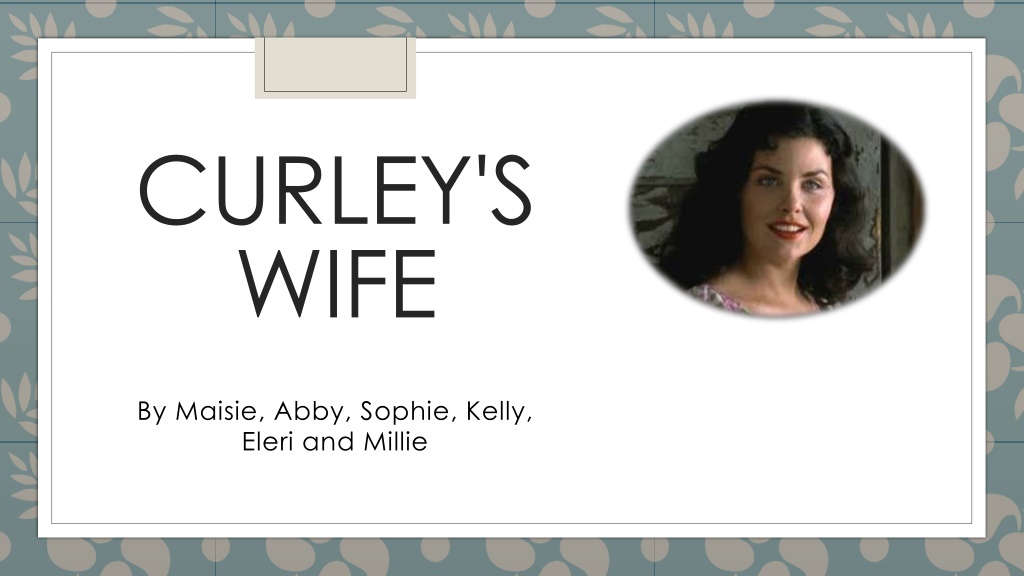

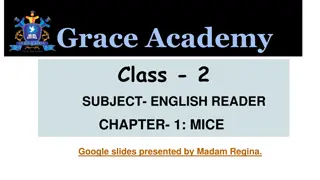
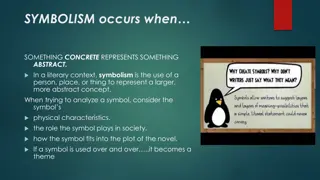

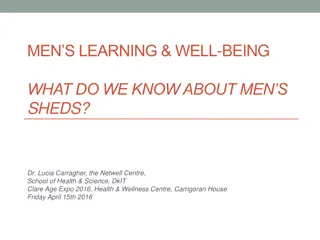

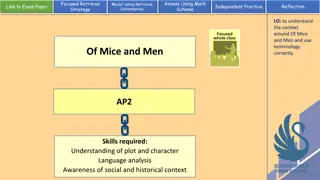

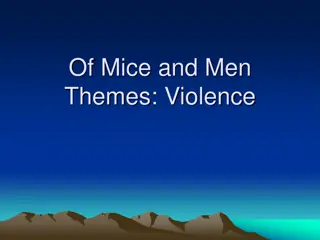
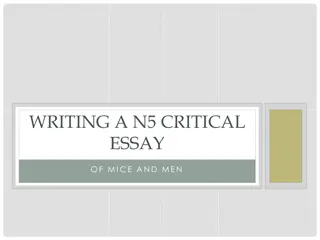
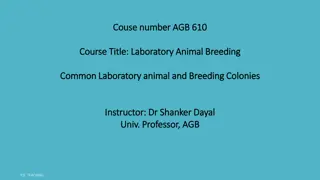








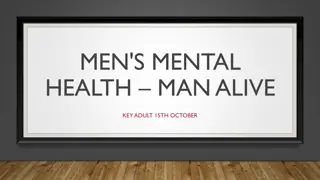





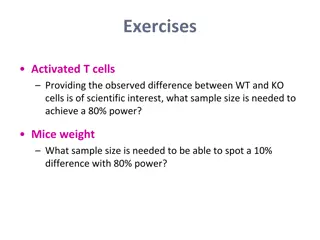

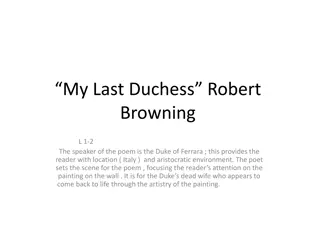


![Property Settlements in Family Law: Case Study of Stamatou & Stamatou [2022] FedCFamC1F 241](/thumb/63303/property-settlements-in-family-law-case-study-of-stamatou-stamatou-2022-fedcfamc1f-241.jpg)
